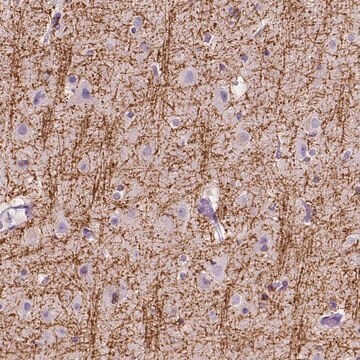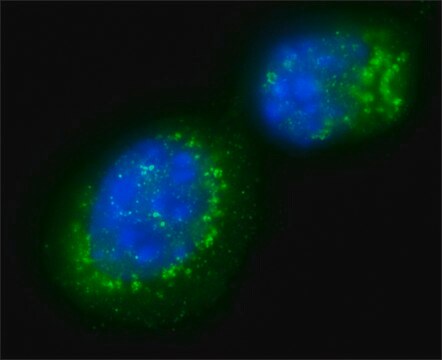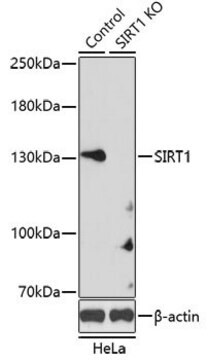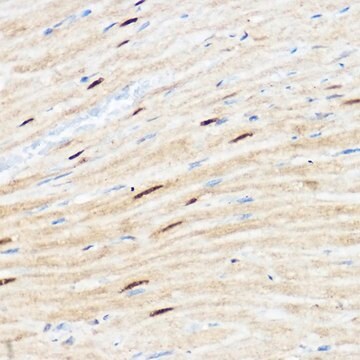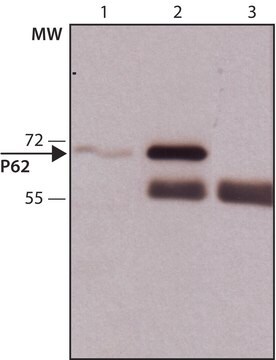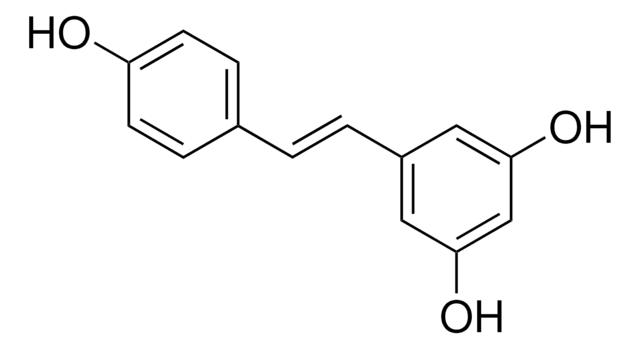S8447
Anti-Sirt2 antibody produced in rabbit
affinity isolated antibody, buffered aqueous solution
Synonym(s):
Anti-SIR2L, Anti-SIR2L2, Anti-Sirtuin (silent mating type information regulation 2 homolog), Anti-Sirtuin 2
About This Item
Recommended Products
biological source
rabbit
Quality Level
conjugate
unconjugated
antibody form
affinity isolated antibody
antibody product type
primary antibodies
clone
polyclonal
form
buffered aqueous solution
mol wt
antigen 37:43 kDa (rat)
antigen 43 kDa (human)
species reactivity
rat, mouse, human
packaging
antibody small pack of 25 μL
technique(s)
immunoprecipitation (IP): 2-5 μg using extract of COS7 cells or 293 cells expressing recombinant human SIRT2 protein.
indirect immunofluorescence: 5-10 μg/mL using human HeLa cells.
western blot: 1-2 μg/mL using whole extracts of mouse and rat brain.
UniProt accession no.
shipped in
dry ice
storage temp.
−20°C
target post-translational modification
unmodified
Gene Information
human ... SIRT2(22933)
mouse ... Sirt2(64383)
rat ... Sirt2(361532)
Related Categories
General description
Immunogen
Application
Biochem/physiol Actions
Physical form
Disclaimer
Not finding the right product?
Try our Product Selector Tool.
related product
Storage Class Code
10 - Combustible liquids
Personal Protective Equipment
Certificates of Analysis (COA)
Search for Certificates of Analysis (COA) by entering the products Lot/Batch Number. Lot and Batch Numbers can be found on a product’s label following the words ‘Lot’ or ‘Batch’.
Already Own This Product?
Find documentation for the products that you have recently purchased in the Document Library.
Our team of scientists has experience in all areas of research including Life Science, Material Science, Chemical Synthesis, Chromatography, Analytical and many others.
Contact Technical Service